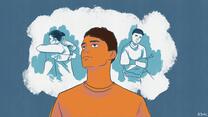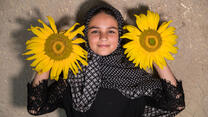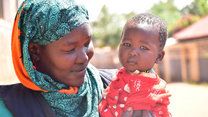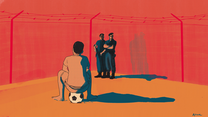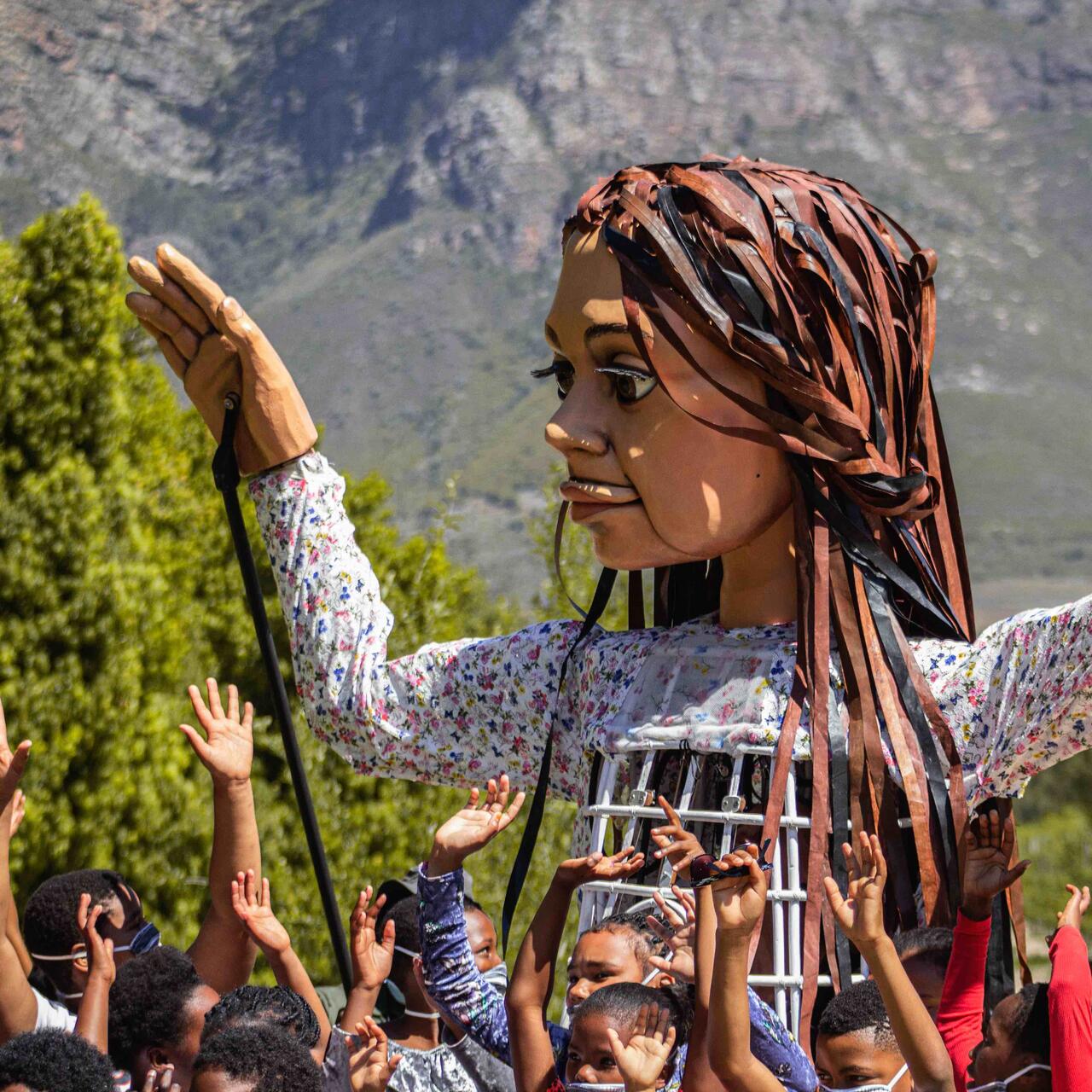
This week, Little Amal - a 3.5 metre-tall "living artwork" of a young Syrian girl, representing the millions of displaced children worldwide - arrives in Brussels after a long walk from the Turkey-Syria border. On her remarkable journey, she is raising awareness of the challenges faced by refugee children and asking people along the way “don’t forget about us”. As we celebrate her message and the friends she has made along her journey, we call for a European Union that welcomes, protects and empowers children like Little Amal in Europe, and beyond.
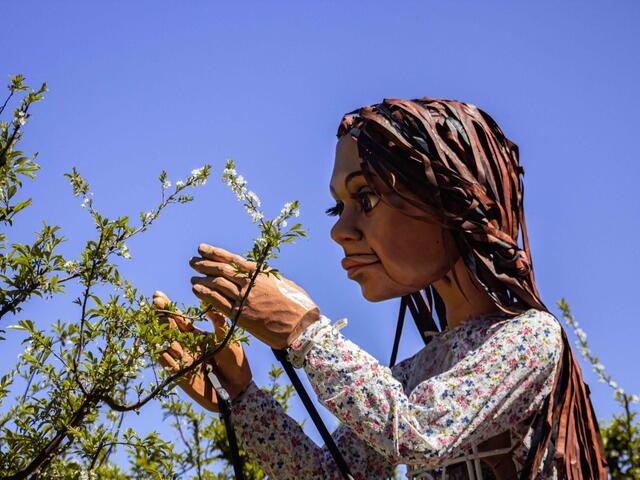
Most 10-year-olds want the same things: to learn, to play, to feel safe. But for children like Amal growing up in Syria, these simple joys have been stolen by a decade of war.
The war in Syria has been one of the largest drivers of the global refugee crisis, which has left 82.4 million people displaced worldwide, 42% of whom are children. Many of them have witnessed unimaginable horrors.
Children in Syria have missed years of schooling. Education provides a sense of stability and predictability, builds resilience, and of course, provides the foundation for success. Parents want the war to end so they can provide better opportunities for their children and their children want to go home, continue their education and look forward to bright futures. They dream of becoming doctors, architects and footballers.
Amal represents millions of refugee children around the world who have fled war and persecution and need our support to rebuild their lives. A decade since the start of the war in Syria, the International Rescue Committee spoke to 10-year-olds and their parents about growing up knowing nothing but war.
Meet them below, and learn what the European Union and its member states must do to support children like Amal towards a brighter future.
Tareq
Ten-year-old Tareq is like many boys his age. He loves football, is scared of the dark and finds comforts in his mother’s hugs. Forced to leave their home by constant shelling, Tareq and his family have been displaced three times.
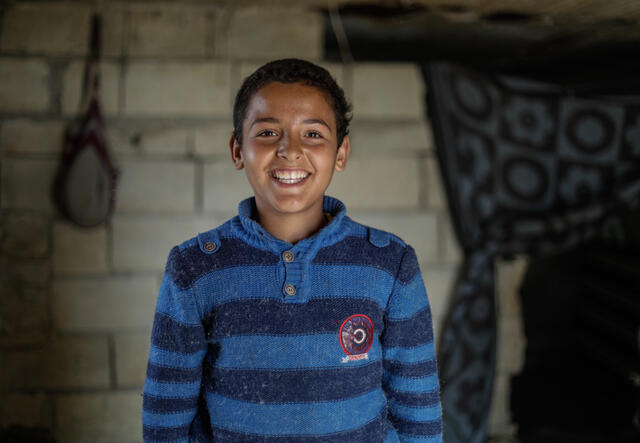
Each time Tareq’s family was forced to move, his parents had to register him at a new school. “He used to be an excellent student back in our village, but now he’s behind,” says his mother, Muna. “He should be in sixth grade, but he has had to change schools so many times.”
Muna adds that she feels fortunate to have enrolled in the IRC’s olive-picking project, a cash-for-work programme in northwest Syria funded by the Foreign, Commonwealth and Development Office (FCDO). Cash-for-work projects give parents like Muna the opportunity to support their families.
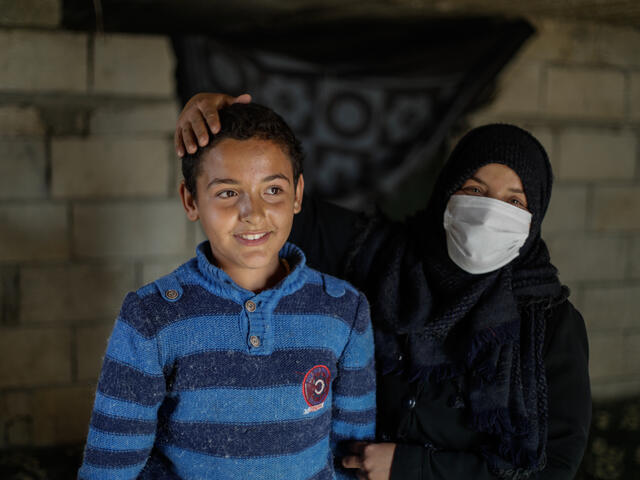
Despite the challenge of living through a decade of war, Tareq remains optimistic. “My friends and I study together for our exams,” he says. “My biggest hope in life is to become a doctor—or a footballer.”
Aisha and Ali
Displaced several times during their first decade of life, twins Aisha and Ali and their family have been able to return to their home village. “We suffered a lot at the beginning, but things are better now,” the twins’ father, Hassan, tells us. Their home remains damaged from an airstrike.
As part of an IRC project to develop short-term work opportunities, Hassan has been helping to renovate a clinic. The hardest thing he faces as a father, he says, is providing a safe place for his family. “There is no income, and the cost of living is very high.”
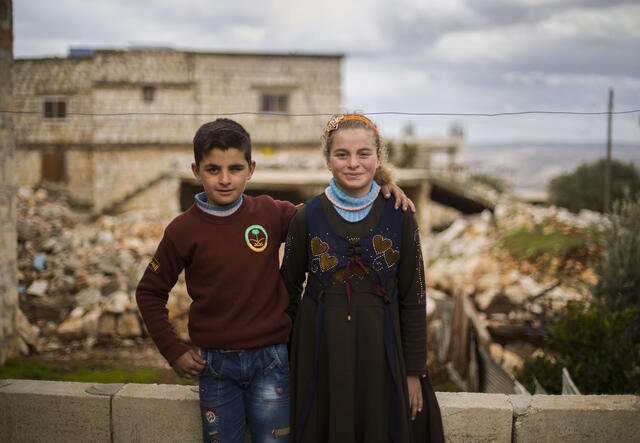
The twins have missed years of education, but they are back in school now. “When I grow up I want to be a doctor so I can treat children,” Aisha tells us. Ali, who was born blind in one eye, has similar humanitarian goals. "When I’m older, I want to work distributing aid to people,” he says. “In the future, I’d like life to be good and beautiful. I want to work helping people."
Hassan and his wife have striven to keep their children’s spirits high. “We try to erase their fears of war,” he explains. “When children see their parents scared, they become more scared, too.”
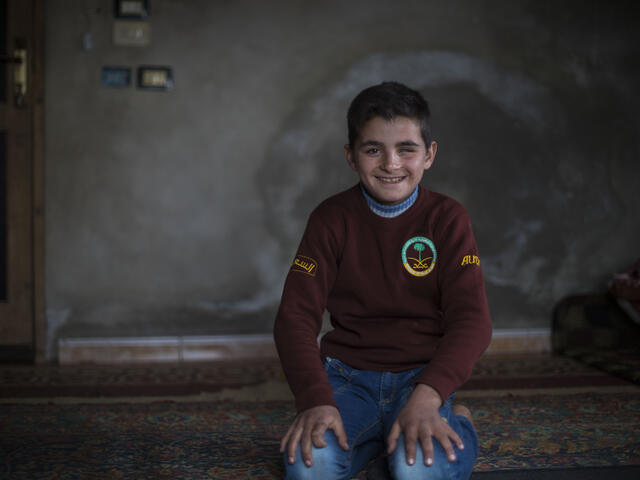
Despite the family’s hardships, Hassan has high hopes for his children’s futures. “I hope they grow up to be diligent and good and have a great future in society.”
Sara
“I like studying hard and scoring first in my class,” Sara says. “When I grow up, I want to become a doctor so I can treat patients”
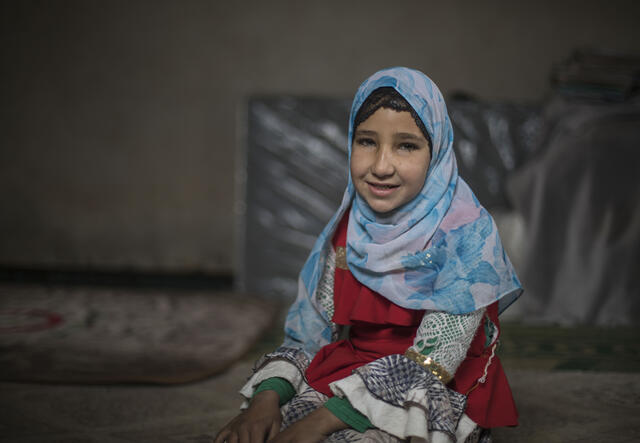
Sara and her family have been displaced around 14 times in seven years—although they no longer can be sure of the number of times they’ve moved. “At first, the children were hugely affected, but now they are coping,” says Sara’s father, Emad. Sara’s fondest hope is simply to return to the family’s home in Ghouta.
“My daughters have missed out on three years of school,” says Emad. “Sara is 10 years old and she’s in the third grade. She should be in the sixth grade.”
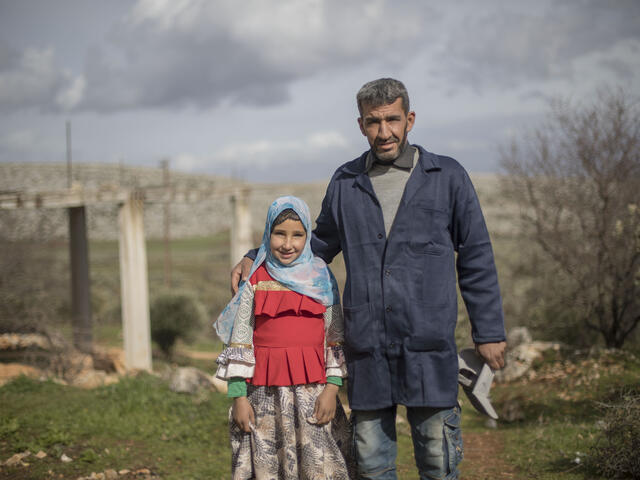
Emad’s hopes for his children are the same as any loving father: “I wish them success in life and better living conditions and their own houses in the future.” But life in Syria is uncertain, to say the least. “I’m proud of my children.… Thank God they’re good students, even if they missed out on a few years.”
Omar
“I know how to swim and I love swimming as much as I like riding bikes,” says Omar. He is equally enthusiastic about learning, although displacement has disrupted his education—and the coronavirus pandemic only impacted it further. But Omar is very smart, says his mother, Sundus. “He always asks questions and doesn’t forget anything.”
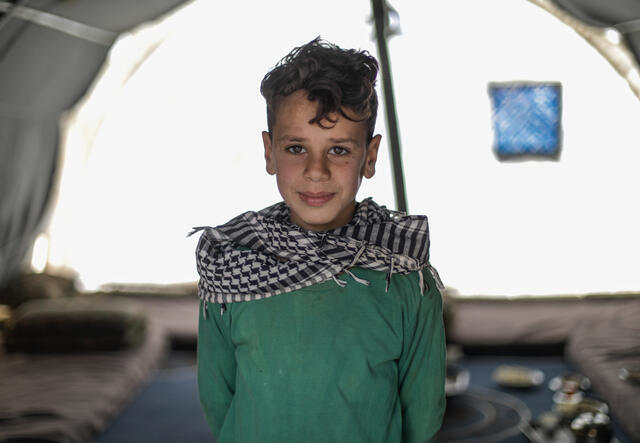
“We thought we’d be back after two days, so we left just with the clothes we were wearing,” recalls Sundus about the family’s forced move. “But then we couldn’t go back because of the shelling. That was two years ago.” Omar’s mother Sundus never imagined their family would become internally displaced—or that they would have to move two more times.
Now Sundus is anxious for her children to catch up and complete their studies. “We used to live on our own land,” she says. “Everything was available to us. Now we don't have a decent shelter. Our family has grown and so have our expenses.”
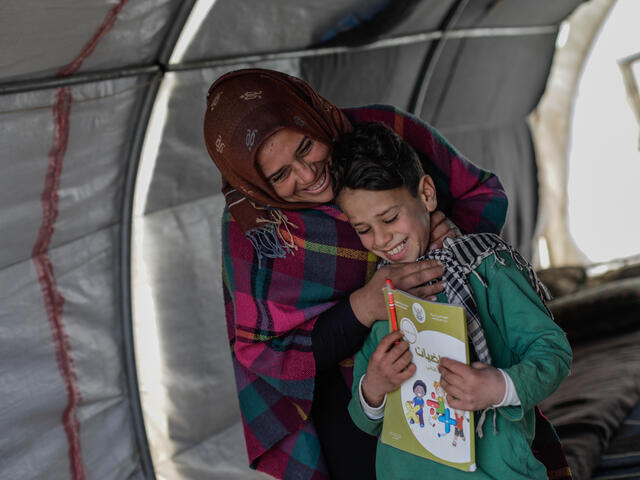
Sundus works as an olive picker to help support her family. Until they can return home, they are doing all they can to support one another.
"When we’re together, we always talk about how we can help each other,” she says. Young Omar wants to do his part, too. “I want to sell fish like my father,” he says.
What the EU should do to help children like Amal
The IRC is calling for EU states to ensure that children who have been displaced can receive protection, live in dignity, and feel welcome and included in Europe, wherever they are and however they come here. They can do so by:
- Increasing the pathways for refugees to safely reach Europe, so that they do not have to rely on dangerous journeys across borders.
- Sharing responsibility for refugees across Europe by relocating asylum seekers in need – and particularly children – such as those trapped on the Greek islands.
- Defending the right to seek asylum in Europe, including by preventing pushbacks at EU borders.
- Ensuring refugees and asylum seekers feel safe and welcome, by valuing and fostering their contributions to European societies from the moment they arrive.
- Listening to and supporting the many cities, citizens and communities that are keen to host, welcome and integrate refugees.
Get involved
Show your support by sending a tweet directly to the European Commission, asking EU leaders to welcome, protect, and empower children like Little Amal.
We welcome #LittleAmal - now it's time for the EU to do the same by:
— International Rescue Committee - EU (@RESCUE_EU) October 4, 2021
✅Opening safe pathways to protection
✅Sharing responsibility
✅Defending the right to asylum
✅Ensuring people feel safe & welcome
✅Supporting the many communities who want to host & integrate refugees pic.twitter.com/pE6PS9e08N
